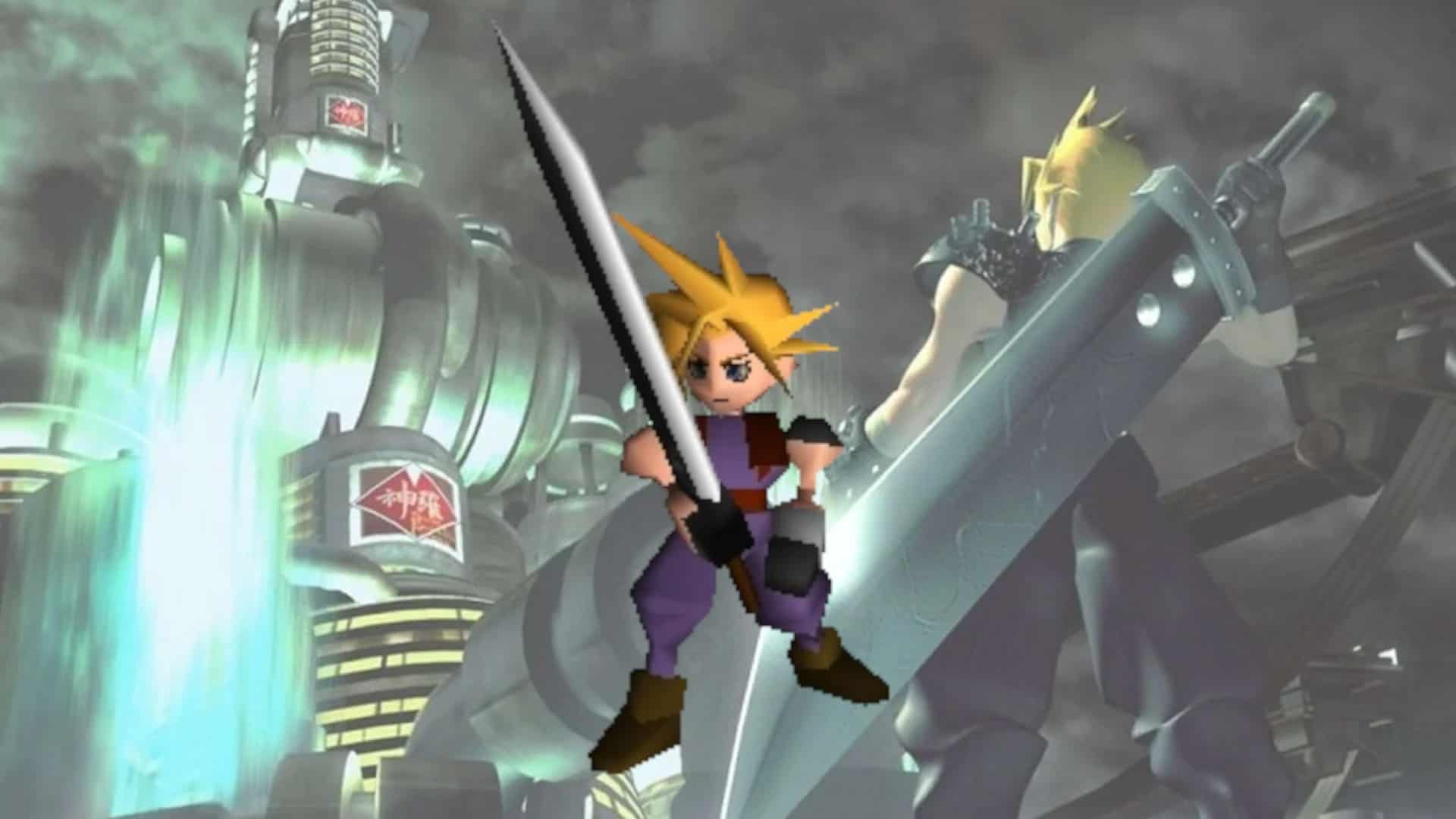Though it may be hard to believe, Final Fantasy has existed as a 3D RPG series longer than it has as a 2D progenitor of the JRPG subgenre. With the series hitting its 36th year of existence in 2023 and the first 3D entry arriving in 1997 with Final Fantasy 7, the majority of the franchise’s existence is, surprisingly, in three dimensions. And while those of us that are fans tracing our introduction to the series back to its original 1987 entry on the NES will likely continue to think of Final Fantasy in terms of its 2D and 3D eras, the truth is that most of the series’ crossover mainstream appeal begins with Final Fantasy 7. As it turns out, most fans know Final Fantasy as a 3D series despite the earlier games.
With most of the games in the Final Fantasy franchise falling under the banner of featuring 3D graphics and the recent release of the series’ origins in the Pixel Remasters series definitively collecting those initial 6 mainline entries, the 3D games are now due for a definitive ranking. With taking bona fide classics like Final Fantasy IV and the contender for best game in the series Final Fantasy VI off the table, how do the rest of the games fare? That is the question we’re seeking to answer, and perhaps somewhat tellingly, the limitation of just ranking the 3D games does little to shift the needle in terms of the best games in the series.
12. Final Fantasy III (3DS, 2006)
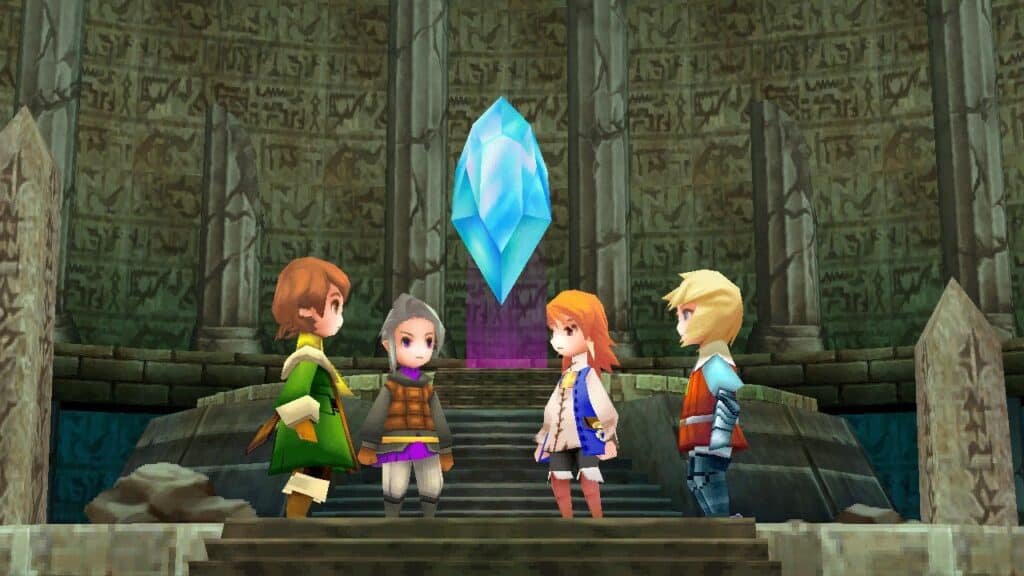
The DS remake of Final Fantasy III is remarkable mostly for being Western audiences’ introduction to the title rather than the original game from which it takes its inspiration. Final Fantasy III does a great job of fleshing out the game’s story while also keeping much of what makes the original a great game intact, but it’s a testament to the later entries in the series and their quality that the 3D remake of the third game in the series lands at the bottom of this list. Still, what Final Fantasy III does, it does well. The job system provides players with a level of freedom in crafting and customizing their party that few RPGs (classic or modern) offer, and the new story beats help to add depth to what was previously a mostly threadbare plot.
11. Final Fantasy XI (PC/PS2, 2002)
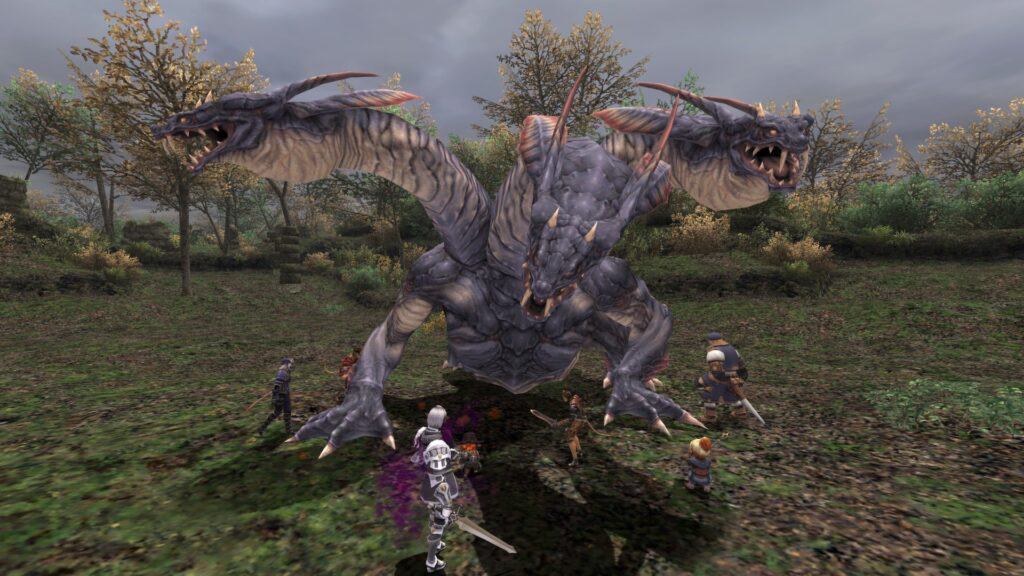
Though the series would not find its footing as an MMORPG until many years later, the first attempt at bringing Final Fantasy online is not without a cult following. For many, Final Fantasy XI represents a dream come true, translating the atmosphere and world of Final Fantasy into the MMO space at a time when players were severely lacking for variety in terms of the online RPGs available. That the game still has a dedicated fanbase speaks to the quality of Square’s first attempt at bringing its flagship franchise into the world of Internet gaming, and many of the ideas that Final Fantasy XI establishes are further refined in future online iterations of the franchise. Final Fantasy XIV may be on online juggernaut, but it’s arguable that Final Fantasy XI walked so that A Realm Reborn could run.
10. Final Fantasy XIII (PC/PS3/Xbox 360, 2009)
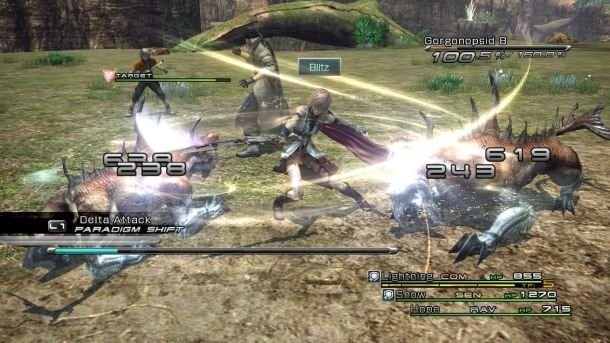
It’s interesting how the sentiment surrounding Final Fantasy XIII has not shifted much since the game’s initial release and reception. While seeing the world of Final Fantasy on 7th generation hardware presents some of the best the series has ever looked, the gameplay tends to suffer in comparison. The running joke surrounding Final Fantasy XIII is that the game is a “hallway simulator”, eschewing much of the series’ trademark exploration and freedom for a more curated and linear adventure. Additionally, many critics of the title feel that the gameplay is rendered too simple through the addition of the “Paradigm Shift” combat system, making most battles trivial encounters. Even with these somewhat obvious faults, Final Fantasy XIII has a great protagonist and interesting plot that help to carry the title and endear it to a core group of fans even to this day.
9. Final Fantasy XV (PC/PS4/Xbox One, 2016)

Considering that Final Fantasy XV can trace its existence back to being part of the Fabula Nova Crystallis subseries of Final Fantasy games and was originally titled Final Fantasy Versus XIII, it makes sense that the game sits somewhere in proximity to Final Fantasy XIII in a series ranking. And, as somewhat of a course-correction from Final Fantasy XIII‘s linearity, Final Fantasy XV adopts the structure and gameplay flow of an open-world game as much as it’s an RPG. An interesting combination, Final Fantasy XV feels like two steps forward and one step back following Final Fantasy XIII and XIV, and the fact that the game released basically unfinished doesn’t help to solidify its greatness in the series’ history at-large. Still, there are elements of Final Fantasy XV that absolutely nail what many fans expect from a mainline entry.
8. Final Fantasy XII (PS2, 2006)
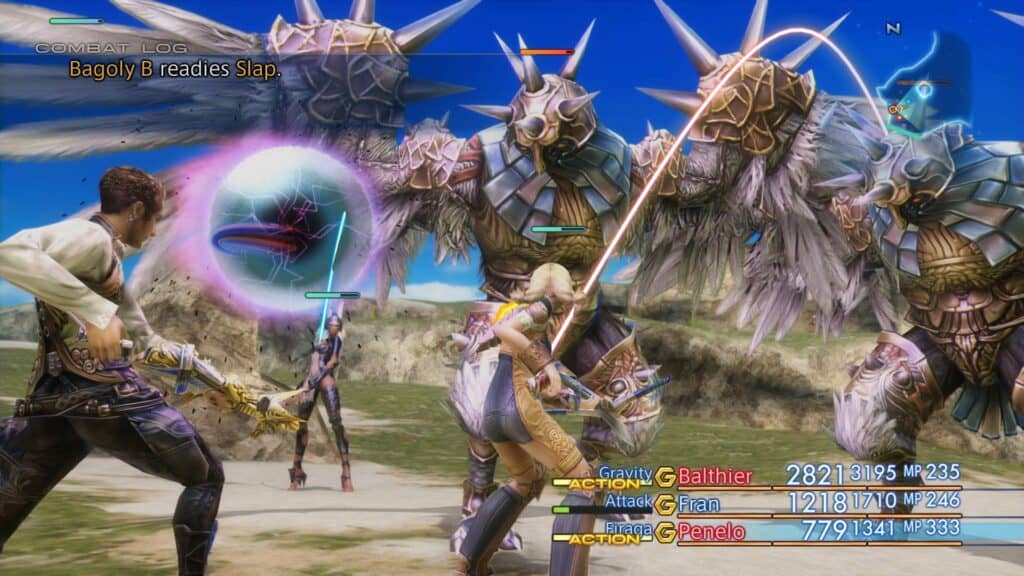
So many aspects of Final Fantasy XII combine to make it an incredible game, and again it’s a testament to the greatness of the series as a whole that it sits all the way down at number 8 on the list of best 3D Final Fantasy games. With direction from Square Enix luminary Hiroyuki Ito (the inventor of the Active-Time Battle system and director of Final Fantasy VI) and writing from Yasumi Matsuno (of Tactics Ogre, Final Fantasy Tactics, and Vagrant Story fame), the recipe for success is there, but some slight missteps prevent FFXII from achieving the greatness that the other games above it happen to reach.
For starters, the game’s protagonist is one of the weakest in the series, completely outshined by an incredible cast of side characters. Additionally, the story is similar to Final Fantasy II in that it cribs liberally from Star Wars. Even with those caveats, Final Fantasy XII is one of the best games on the PS2, and a fitting swansong to the series’ lifespan during the 6th console generation. With the release of The Zodiac Age version of Final Fantasy XII, it also happens to feature some of the series’ best combat and character progression.
7. Final Fantasy IV (DS, 2007)
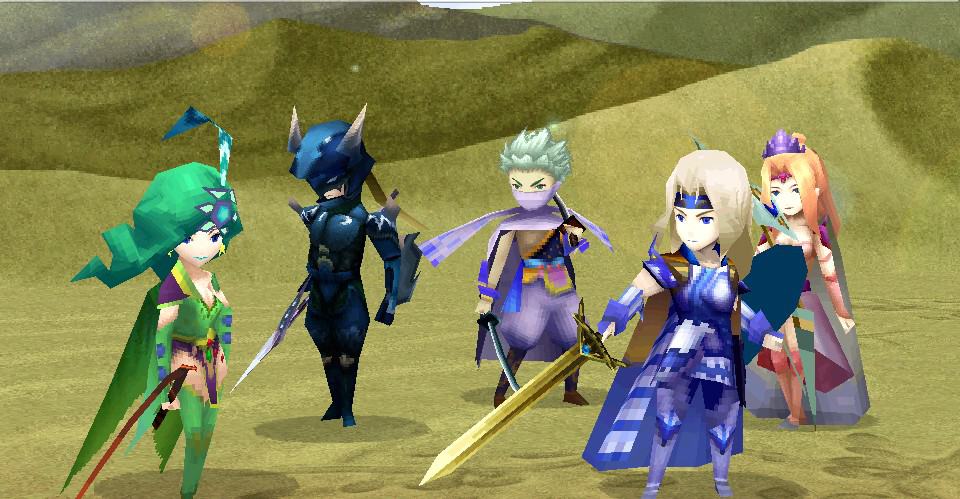
It’s difficult to rank the DS remake of Final Fantasy IV so low on this list compared to where it might sit on an overall ranking of the series, but so incredible is the original that the 3D remake somewhat pales in comparison. That said, Final Fantasy IV beautifully translates the characters and world of Final Fantasy IV into 3D, and it does so all while maintaining the notorious difficulty and incredible narrative of its source material. The new graphical assets help to bring some of the series’ most iconic characters and locations to life, and the core experience at the heart of Final Fantasy IV holds up incredibly well when stacked against other games in the series. Final Fantasy IV continually oscillates with Final Fantasy VI for my personal favorite in the series, and the DS remake would rank higher if it were the original version of the game.
6. Final Fantasy XIV (PC/PS3/PS4, 2010/2013)
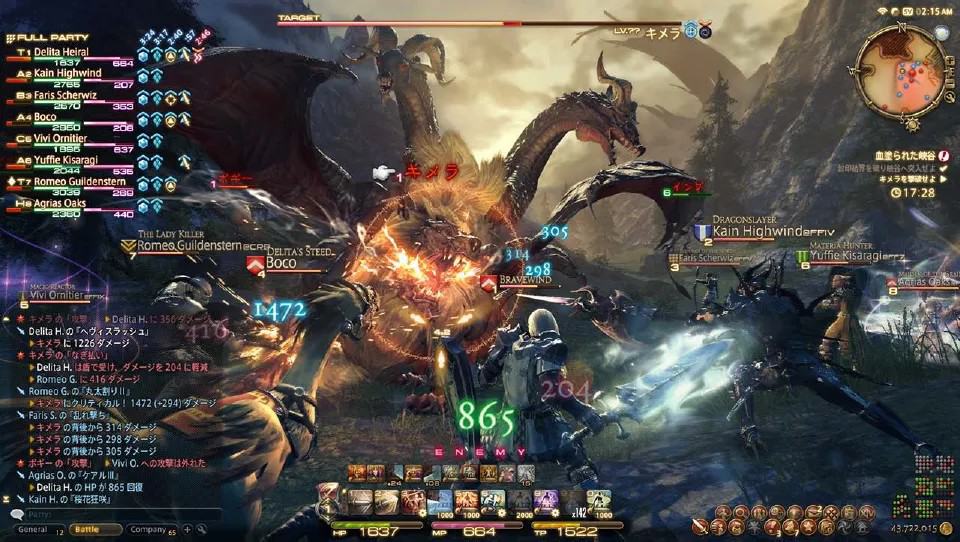
Few games on this list have the same kind of staying power and lasting replayability of Final Fantasy XIV, but then again there are very few MMORPGs on this list outside Final Fantasy XI. Final Fantasy XIV‘s phoenix-like resurrection under the guidance of Naoki Yoshida is nothing short of miraculous and one of the best redemption stories in gaming, and the game continues to have one of the most welcoming and positive online communities of any massively-online game. Final Fantasy XIV isn’t just one of the best Final Fantasy games with an incredible story, fantastic combat, and a great reinvention of the series’ Job system, it also happens to be a world where friendships and lasting bonds form and still remain. That the title is still receiving expansions is no surprise, as it’s hard to imagine a new online Final Fantasy possibly topping the brilliance of Final Fantasy XIV.
5. Final Fantasy VIII (PS1, 1999)
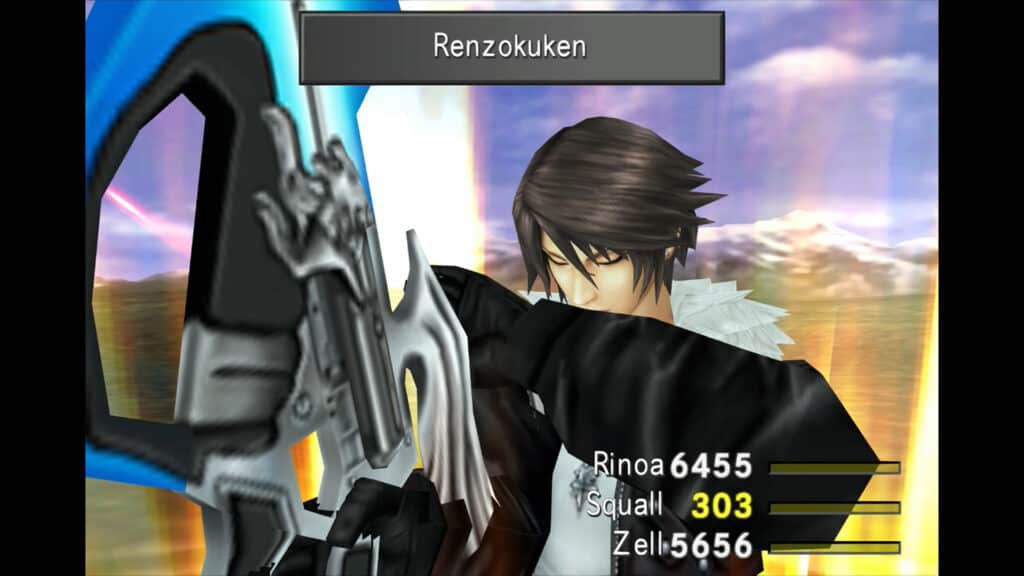
That Square Enix follows up the release and widespread acclaim and success of Final Fantasy VII with one of its most mechanically complex games immediately after is one of gaming history’s greatest head-scratchers, but those who take the time to dive into Final Fantasy VIII will find that it is infinitely rewarding for observant players. The Junction and Guardian Force systems allow for unprecedented levels of stat manipulation and min/maxing of characters, allowing players to essentially break the game should they choose to do so, and the Triple Triad card-battling mini-game isn’t so much a fun distraction as it is a superhighway to Final Fantasy VIII‘s best items and equipment. Underneath all of its intricately interwoven systems, though, Final Fantasy VIII is an overlooked and satisfying RPG that deserves a second look from those that may have played it on release and never looked back.
4. Final Fantasy XVI (PS5, 2023)
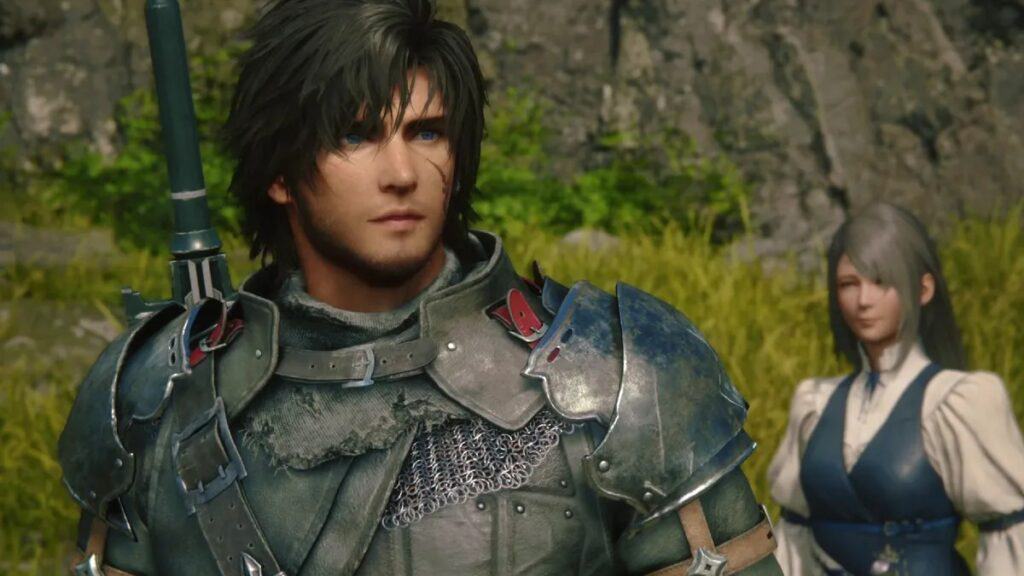
For all of the departures that Final Fantasy XVI is willing to take to differentiate itself from previous entries, actually playing the game shows that it’s a Final Fantasy title through and through. Few of the games on this list “feel” more Final Fantasy than XVI, and it’s clear that the game’s development team (spearheaded by Final Fantasy XIV‘s Naoki Yoshida) have a reverence for the series’ legacy and atmosphere, despite moving away from many of the franchise’s “sacred cows”. The introduction of real-time combat is executed masterfully, with Ryota Suzuki’s experience on the Devil May Cry and Marvel vs. Capcom franchises clearly shining through, and the decision to make the narrative more mature and grounded in reality pays off in one of the best stories to feature in any game in the series. A masterpiece.
3. Final Fantasy X (PS2, 2001)
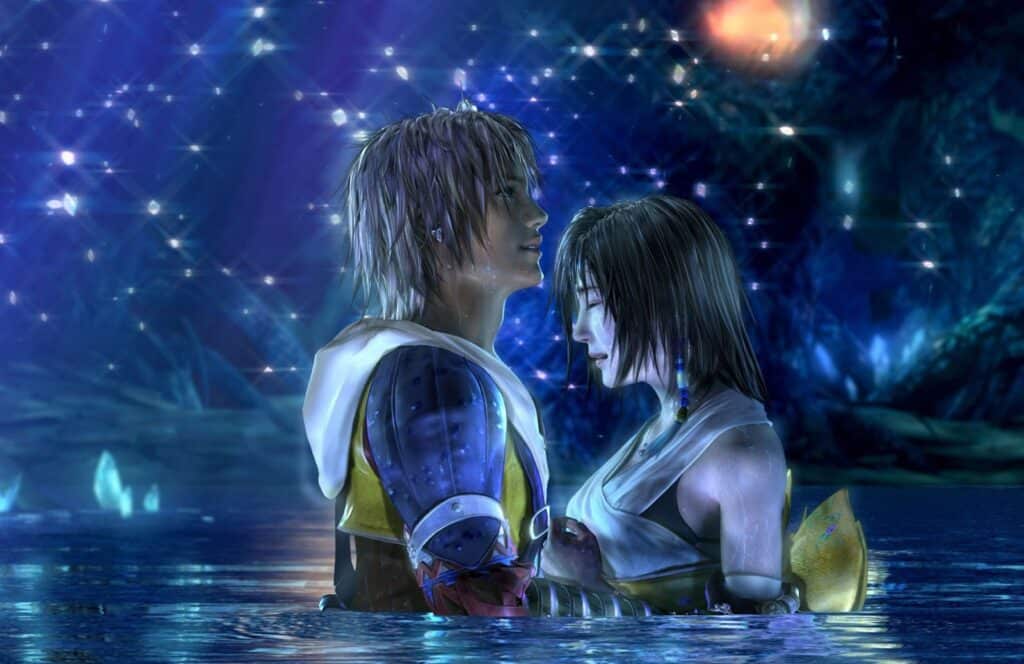
Speaking of mastepieces, it’s impossible to talk about the emotional impact that some of the stories in Final Fantasy history have without mentioning the absolute gut-punch of Final Fantasy X. The game’s core themes of pilgrimage and loss permeate nearly every aspect of the game from the moment the proceedings begin, and the conclusion to Final Fantasy X is one of the most emotionally affecting in the series. Surrounding that incredible narrative is an excellent iteration of the series’ classic mechanics, including one of the franchise’s best character progression systems in the Sphere Grids and an atmosphere and setting that uses Southeast Asian culture and locales as its inspiration rather than the traditional European fantasy or North American cyberpunk dystopia. The result is a Final Fantasy game that is wholly unique within the series, even if it feels familiar.
2. Final Fantasy IX (PS1, 2000)
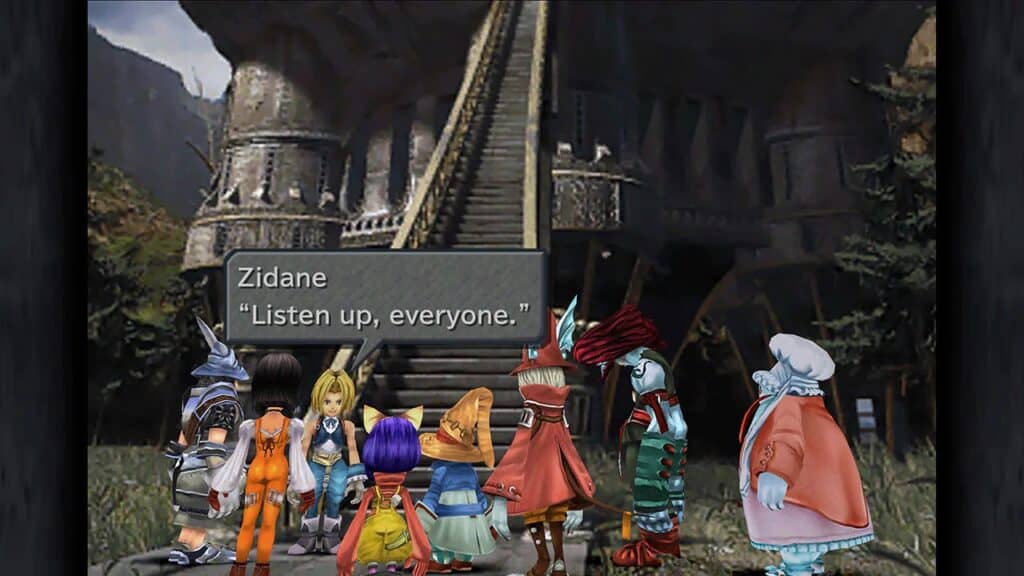
Final Fantasy IX is the ultimate example of Square Enix delivering fan service to the Final Fantasy community, and it also happens to be the best kind of course-correction following the mixed reception to Final Fantasy VIII. VIII is a great game (see above), but it definitely takes the series further down a dark path established in Final Fantasy VII where the franchise seemed to be moving away from its roots in favor of telling grimdark futuristic dystopian tales with brooding male protagonists. In comparison, Final Fantasy IX is a breath of fresh air. Protagonist Zidane is a charming and affable hero who truly cares for his companions, and the return to the high fantasy of the series’ past feels like a homecoming. Tie in an excellent narrative and some pitch-perfect mechanics, and you have a fitting farewell to one of Square Enix’s best eras.
1. Final Fantasy VII (PS1, 1997)
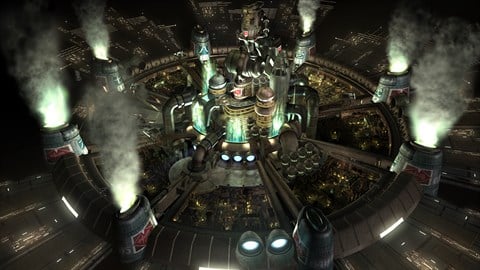
In terms of its gameplay, narrative, themes, atmosphere, setting, and relevance and importance in the series’ history and legacy, no game comes close to reaching the heights of Final Fantasy VII. It’s not a perfect game, by any means, and there are some issues with its translation and place as the first 3D game in the series. But what Final Fantasy VII gets right, it gets oh so right. Cloud is one of the most iconic and recognizable protagonists in all of games, and the same can be said of his antagonist Sephiroth. The introduction of the Materia system brings magic down to a level playing field, allowing for all kinds of skills and spells to be learned by any character, and the game’s themes of identity and struggles with mental illness (as well as the dangers of unchecked progress and late-stage industrialist capitalism) still ring true as relevant today.
